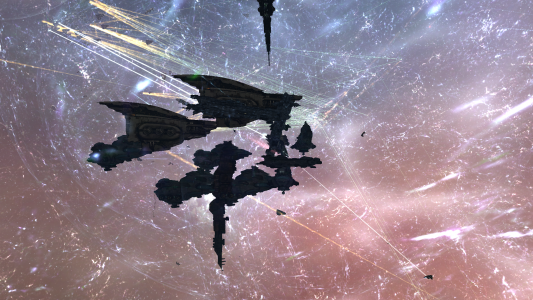“After nourishment, shelter, and companionship, stories are the thing we need most in the world.” – Phillip Pullman
A couple of years ago, I brought home a 25-pound black cube. Inside was one of the most obscure and complex tabletop RPGs ever created: Invisible Sun. As someone who played D&D for years (and ran games professionally), it was like going back to school and learning what games could do.
All the intricate, esoteric rules came together to offer something unparalleled: a framework that told you “if you can imagine it, it’s possible.” Want to turn yourself into a cloud of sentient fireflies? Fine. Want to capture a moment of time and relive it again and again? Doable. Want to break the timeline and rewrite the past? It’s hard, but you can do it.
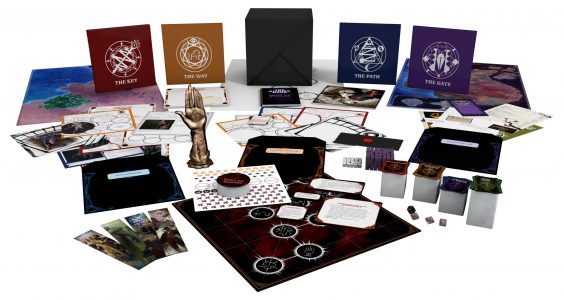
The biggest departure from other games was how the story played out. Instead of the Game Master tossing out a quest, players undertook Arcs, a mini-story arc that could be anything from gaining revenge to becoming a parent. At every step along the Arc, they had a chance to earn ‘Joy’ (if things turned out well) or ‘Despair’ (if things went badly). In Invisible Sun, you needed both Joy and Despair to ‘level up’, so even when you failed, you still grew from the experience.
What I didn’t count on was the reaction from my players: in a game where you can do anything you can imagine, their biggest challenge was figuring out what stories they wanted to create. There were all kinds of limits to strain against, challenges to overcome, paths to follow, ingenious possibilities to explore, but thirty years of D&D had made TTRPGs synonymous with killing things, selling loot, and finding gear. Once you’ve spent years in that mindset, it’s hard to imagine what else an RPG can be.
Invisible Sun showed me that the limits of a game aren’t always its system or even its mechanics—sometimes, it’s the mindset players bring to the table. And more and more, I’ve been seeing parallels with EVE.
THE OPTIMIZATION MINDSET
Recently, I returned to EVE after trying out the game earlier this year. When I started in January, I immersed myself as much as I could: I joined a corp for new players, trained with a mentor, read and memorized as much as I could, and tried to get a ‘big picture’ of the game by reading and listening to folks who’d been around longer than I had.
Even after I put the game on hold to deal with career stuff, I kept plugged in to the EVE community. However, after the heady, overwhelming few months playing, a lot of things came into sharper focus once I had time to reflect. The foremost realization I had is that there is a mindset that seems to permeate the game.
The mindset, to me, is one that seeks to push the risk/reward ratio as high as possible on the side of reward, even when doing so has stopped being fun. In addition to this, there’s an assuredness that this is how EVE is meant to be played.
After looking around, I found that some long-time players felt similarly. According to a post by Dinkle about the state of EVE Online in 2022:
“After almost 20 years, players have solved EVE Online. Almost every aspect of the game is min/maxed and players can completely optimize their gameplay…In a grimdark world of internet spaceships, there are no mysteries. No wild unknowns. No risks that aren’t understood and fully calculated to significant digits of accuracy.”
The only wild card left in EVE, he says, is the players themselves. But EVE has encouraged players to be ruthless, pragmatic, and rational in order to gain an edge, whether it’s combat or making money. In a race to achieve their goals, many players have abandoned everything but optimization.
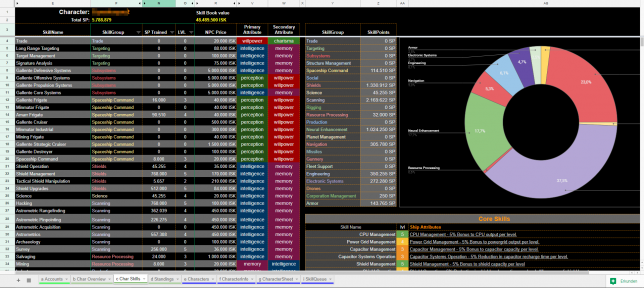
And optimization only cares about measurable, tangible markers: ISK/hour, high-priced kills, number of kills, amount of territory, etc. Soon, optimization stops being a tool to achieve goals and starts being a goal in itself. It displaces other conceptions of ‘fun’ with a steadily increasing number. That is fun for some people, but the problem comes when those people begin telling others that this isn’t just one way to play EVE—it’s the only one that matters.
And the galling part is that when they point at their masses of powerful ships, vast expanses of territory, and large member rosters, they seem like the picture of success—until you realize that those are just numbers, too. They don’t do much. They aren’t for anything.
According to Dinkle:
Many of the changes introduced during the scarcity era were intended to get players to move into new areas and create conflict. That did not happen. No large group went to war to control space in low sec to mine exclusive ores. They just buy whatever they need in Jita and ship it where needed.
Meanwhile, Ashy describes how null sec has evolved into a safe, secure treadmill for krabbers, often to the exclusion of all else:
System after system is just full of bots or players roleplaying bots by simply participating in the same 19-year-old combat sites that can be completed blindfolded, literally. Or at least until they get warned that I am 5 jumps away so they can safely stop “playing” EVE.
A lot of players (especially well-established ones) have invested hundreds and thousands of hours digging into EVE and finding the optimal paths, but I think many are confronting the fact that although they have ‘mastered’ the metagame, playing optimally limits everything but the narrowest path, and that path just isn’t much fun. In the words of Frank Herbert, author of Dune:
“We try to copy these patterns in our lives and in our society, seeking the rhythms, the dances, the forms that comfort. Yet, it is possible to see peril in the finding of ultimate perfection. It is clear that the ultimate pattern contains its own fixity. In such perfection, all things move towards death.”
People don’t come to EVE with the promise of a Skinner box—they come for the stories, the battles, the freedom, and the ability to build something. But to achieve any of those things, a player needs to find a path, and in a world of ruthless competition and hyper-optimized competitors, there’s a sense that you either adopt a similar mindset or quickly fall behind.
ACCUMULATION VS. ACHIEVEMENT
According to prammann (of IskAverse), the prevalence of this risk-averse, “incremental gain” mindset is reinforced by the way EVE has developed over the years: CCP has subtly tuned the game away from risk and reward, and instead grown to reward players who abhor risk and value accumulation above all:
In short, CCP has trained us to accumulate rather than achieve. Now, as they try to rebalance the game, they are faced with a fundamentally opposed player mindset that they themselves installed.
Prammann argues that EVE Online has adopted the same model as many other MMOs, which train players to pursue a steady trickle of rewards in order to keep them satisfied (and paying the subscription fees). This has caused a shift in mindset, prammann says:
Over the past several years, CCP has systematically increased iskflow from most major sources, while reducing the barrier for entry with skill injectors, citadels, [etc]…the general culture and the discourse used by EVE players has swung to evaluating progression based on assets, not achievements…
When the mindset of EVE players becomes centered on accruing more incremental advantages, it kills any appetite for risk or conflict. This player mindset is less concerned about unique experiences, fun, or dynamism, and more about chasing the newest ways to inflate numbers to get that sense of progress, of achievement.
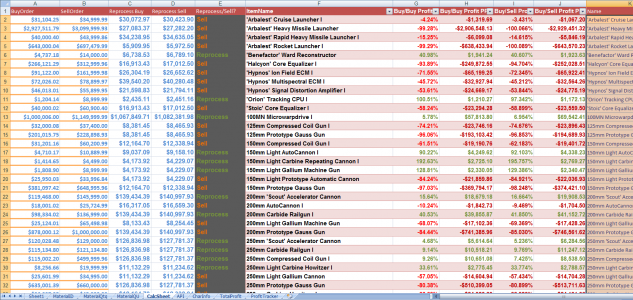
For a lot of players, this is why PVP is considered the real heart of the game: instead of doing X to get Y to make a number go up, you get the thrill of matching wits with another pilot–or just ganking someone before you get ganked. There’s tension, excitement, execution, which are all things people expect from playing a game. But that, too, has been optimized out of EVE for some groups.
According to Reddit user judahnator, in a post titled “Real talk, when do you fight?”:
If we vastly out-form the enemy then we actually undock our fleet, but since we are an overwhelming force the enemy won’t show up. If we have equal or fewer numbers then the fleet is stood down because “it’s easier to replace a fort than SRP will cost.”
Judahnator goes on to recount a mind-boggling anecdote:
Just a few nights ago a small gang came to reinforce a jump bridge. There were a few guys on comms that were coordinating jumping in caps…We were told to immediately dock back up. Not because we wouldn’t easily crush the enemy fleet, but because the coalition heads didn’t want to give the impression that groups would get a fun fight if they came to our space.
Judahnator’s leaders not only deprived fun from their enemies by refusing to meet them on the battlefield, they deprived their own members from having fun in favor of restoring whatever losses they would sustain. This is the optimization mindset at work, and this is what it does to the game.
This isn’t an isolated problem. As Prammann says in his post “If You’re Too Big to Fight, You’re Too Big to Exist”, huge nullsec corps/alliances command huge chunks of the playerbase of EVE, especially new players who are offered an easier entry into the game with the help of these entities. And the dominant mindset in those corps/alliances is to avoid risk and focus on accumulation:
Nullsec alliances…teach their pilots to make money, to avoid drawing attention to their space, to avoid fighting except for strategic reasons and to join fleets, which are built inherently not to develop skills but to encourage multiboxing…Furthermore, for their own security, these alliances form broad coalitions and try to avoid wars. This is the design of the “empire building” era of EVE – to create a constant cold-war scenario, in which making money and accumulating assets is the single most important factor in winning a war.
Even if PVP was allowed to be risky and fun, the lure of EVE has always been that it’s not just another Elite Dangerous or Star Wars: Squadrons. It’s supposed to be more than that—a living, breathing galaxy filled with players who love doing things including fighting. Part of the promise of EVE has always been that players are the primary creators of EVE’s ongoing story, but it seems like many players have decided to eschew human stories in favor of stories that belong to robots.
EVE Is Filled With Stories
Everywhere I look, I see stories about EVE: the player who infiltrated a corp and stole the treasury; the small fleet that held off an armada; the bitter feud between corps: the lone bounty hunter who hunted down and iced a griefer. These stories are what draw people into the game and keep people playing, and many of them have nothing to do with stereotypical ‘roleplaying’ (ie, playing with a persona).
The flashy, headline-grabbing sagas are only nuggets picked out of thousands of hours of play. They rise to the top because they fit what we imagine a space opera should be. But EVE is filled with thousands of stories that don’t fit the mold: the small group of pirates who built a home; the deal struck between a guild of miners and a small hauler corp to unite two regional markets; the manufacturer who stared at spreadsheets long enough to build an entire logistics network.
There’s plenty wrong with EVE as a game (insert laundry list here), but as I see it, the biggest issue is that players come for stories, but they’re told, implicitly or explicitly, that you shouldn’t look at EVE that way, or that the stories of most players aren’t the ones that are worth telling. You’re here to krab, or mine, or fleet up on schedule. You’re here to run on the treadmill, and if you aren’t willing to find that fun, then you need to find a new game.
People may argue that resigning yourself to being a cog in the machine is what it means to join a corp—individuals contribute to success, success breeds growth, growth breeds bureaucracy, and bureaucracy kills stories.
This isn’t true at all. Again, I’ll quote prammann, who details his experience during a massive, objectively boring, tidi battle:
I wasn’t there for the gameplay. I was there for the same reason someone might write fan fiction, or go to a convention, or even a concert—I was there to be part of a narrative, to be part of the community that would build and sustain it.
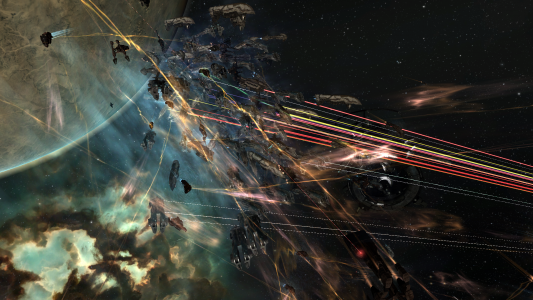
Corps don’t kill stories, and neither does being a cog in a machine. I think the real issue is the mindset players take toward stories in EVE.
The stories can be ones we tell ourselves, or tell our corpmates, or tell the EVE community at large. If you think there’s no interest in “boring” stories about markets, spreadsheets, and esoteric trade agreements, I’d like to remind you that Michael Lewis’ The Big Short was decided marketable enough to serve as a Hollywood movie featuring Ryan Gosling and Brad Pitt.
There’s no way to stop players from tirelessly seeking out the most efficient way to churn out ISK, but there is a way to tell players “Hey, that doesn’t have to be all you do.” With the ISK you’ve earned, the ships you’ve built, and the people you know, you can find new goals, new challenges that you decide on. Creating your own stories doesn’t mean turning into a Don Quixote, tilting supercapitals at windmills in doomed crusades. Instead, it might looks something like this:
A miner is looking to supply his small hi-sec corp with isogen to create more Herons, but he knows pirates are waiting in nearby low-sec systems. He talks to his corpmates, then opens a conversation with a local pirate group leader and offers them a deal: cut-rate T1 frigates from his corp in exchange for blue-listing him. The pirates want to fight, but they want to do it in cruisers. So a deal is struck: safety for monthly deliveries of Caracals.
So a story develops between a group of pirates at the edge of civilized space and a little corp that’s willing to trade profit for arming their former hunters.
Or, the hi-sec corp can just buy the isogen at Jita, pay a hauler for the jumps, and make their Herons that way.
The example above isn’t a perfect comparison, but it exemplifies the way stories make life more fun than simply finding the path of least resistance. Will it mean sacrificing some efficiency? Probably. But arguably the most important metric in a corp’s success and resilience is how much fun it offers its members. Efficiency is still important, but it’s not everything.
For a lot of players, I think it’s a lot more attractive to log into EVE and be part of a story than simply logging in to compare two bar graphs (even if the stories they’re pursuing involve a lot of bar graphs). And as commentators have pointed out time and time again, corps live and die depending on how many of their members log in to play. In fact, that’s what EVE lives and dies on.
But to follow this path, players have to start thinking in terms of stories: where to find them, how to create them, and what a fun story looks like.
MAKING STORIES PART OF CORPS
To start changing the mindset of players in EVE, the natural place to begin is with leadership: corp CEOs, officers, managers, etc. These are the people who can reach the most players, and whose voices people look to for guidance.
Right now, a lot of the “storytelling” only happens when it’s strictly necessary: a leader might give a speech about why they’re starting a war, or announce why they’ve lost one. But ideally, stories should permeate every aspect of a corp’s operations. For example, let’s say a wormhole corp is farming blue loot and selling it to NPCs. A corp officer calls all the krabbers to a meeting and says:
We’ve been here for over a year now, in a place of our own. This station is our home, our launch pad for everything we do, and you, our krabbers, risk more than the miners in Impass, or Feythabolis. On the will of Bob, you may be ganked by anyone who stumbles through a wormhole. But our traders haul your loot to the Red Alliance, to the Imperium, so they can fight to the death in their Tengus. They fight for what’s theirs, like we fight for what’s ours. And what we are is free.
This type of talk isn’t just a corporate pep-talk or LARP set-dressing—putting things in context, showing how all these efforts are concerted, gives meaning and weight to everything a corp does. They show corp members how they fit into the bigger picture.
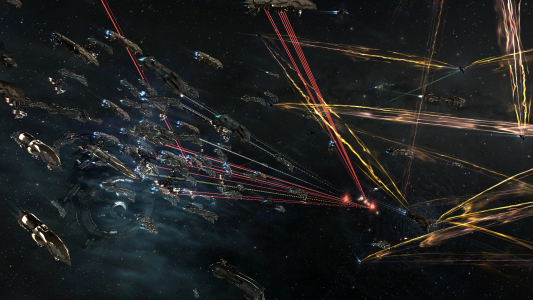
But it has to be backed up with more than just words. Leaders (and officers) should be looking at their members and asking them what kind of stories they want to be a part of. Those wormhole krabbers might want to learn to fly a ship they’ve always thought was cool, but wasn’t part of the corp’s usual fare. They might want to start hauling some of the stuff they farmed and be a daring mouse in the ‘cat and mouse’ that defines EVE.
At the corp, alliance, and coalition level, leaders should stop thinking “take no risks, cede nothing, and hold on to what we have.” Instead, they should be thinking about what kind of stories they want to bring to their members, what story their corp/alliance/coalition is telling, and what stories are already happening around them. Stories should be one of the primary forces driving strategic objectives and major undertakings, because at heart, they’re one of the major things that make those objectives and undertakings worthwhile.
And while leaders are weaving stories, individual players should be finding (or creating) the stories they want to tell, within their own corp or with its help. Instead of clinging to the familiar, the safe, and the profitable, they should be making time to figure out what, if anything, would make for a fun story for a week, a month, or a year, even if they need to build up to it. No matter what they pick, they’ll need ISK, friends, and the willingness to watch themselves blow up.
WE MAKE EVE WHAT IT IS
Whenever I think about EVE, I inevitably think back to Invisible Sun: how players drive the game, not the Game Master, how they need both Joy and Despair to advance their characters, and what a weight it is to look at a blank canvas and imagine a new story.
When you’re logged onto EVE and you’re busy managing your UI, Eve Eye, spreadsheets, and a second monitor filled with a scrolling Discord, it’s hard to see a coherent story there. It’s a whole lot easier to see the surface: the notifications that a Market Order has been filled, or some chatter in Chat that someone got ganked. When everyone around you, and even the game itself, seems to downplay the drama that lies behind the surface, it’s easy to think that the only ‘stories’ are the ones ginned up by propagandists and reporters on Kotaku.
That’s a cop-out. That’s looking at the Grand Canyon and saying “yeah, it’s erosion–so what?”
EVE is filled with stories. Part of the issue is that people don’t see them, but another issue is that a lot of people don’t make them. I’m not alone in feeling this way. According to Rixx Javix:
It’s a sandbox. Get off your ass and make something happen. Change careers, find friends, create content, stop whining about CCP and go make the universe YOU want actually happen.
I’ll also quote prammann one last time:
Look, you like this game or you don’t. But it should be about liking the game, not your stack of isk or minerals. You could get that feeling anywhere. The really unique thing EVE has to offer is that just finding a way to be in this world can be its own reward. So get your shit together, undock, go see some sights or make a bookmark pack or roleplay, try something new…’
Some people might say “If you want stories, join a roleplay group in EVE or just unsub and go play D&D.” That’s missing the point—stories are already everywhere in EVE, and they have the power to make it wonderful. But it seems many people are trained to ignore them, or discount them. The mindset of those players needs to change, not to make me happy, but to bring EVE to its full potential—the potential to grow, to keep new players, and give old players something that they can’t get anywhere but New Eden.
